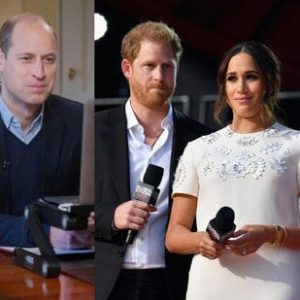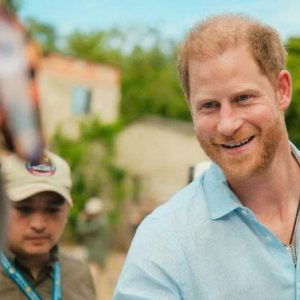New allegations have surfaced against Prince Harry’s African conservation charity, including claims of torture and rape.
It comes after an investigation by Dutch journalist Olivier van Beemen which details alleged abuse by former and current staff at African Parks charity.
One former ranger claimed he and his colleagues beat suspected poachers as they were tied up and dangling in the air, a brutal method known as ‘the swing’.
Prince Harry was promoted to the organisation’s governing board of directors last year after being the president of the charity for six years, The Times reports.
His duties include taking part in the organisation’s policy and supervising the management of 22 national parks across the continent.
Now the Duke of Sussex is likely to face pressure to step down following the allegations, The Times said.
African Parks bosses allegedly debated whether Harry was still a useful connection after his departure from the royal family.
A source told Van Beemen they were concerned at the time of the royal exit whether the ‘controversies surrounding the prince’ could pose ‘a risk’ to the charity, Time Times reports.
Torture allegations by African Parks rangers
This is not the first time the charity is at the centre of abuse allegations.
In January, it announced a probe into separate allegations of rape and torture by its guards in the Republic of Congo.
Van Beemen’s book, Entrepreneurs in the Wild, includes testimonies of the alleged brutality by staff who were on African Parks payroll.
Over the three-year investigation, he interviewed victims and those who claimed to have carried out the abuse.
Foster Kalunga worked as an African Parks ranger in Zambia for five years until 2022.
The rangers interrogated suspected poachers in the Liuwa Plain national park using a torture method kampelwa, ‘the swing’, Kalunga claimed.
He told the author: ‘Sometimes we use kampelwa. Then you tie someone up, hands and feet tied together, behind his back, and you hang him on a stick between two branches. And then you spin him around while you hit him.
‘It doesn’t last long because it hurts a lot. When he hangs there he says everything you want, even things he doesn’t know.’
African Parks denied they had any knowledge of the torture method being used by its rangers.
It claimed Kalunga had been discharged for gross misconduct.
Etienne Koliwa, who worked for ten years in Garamba national park in the Democratic Republic of Congo, claimed instructors taught them a poacher is ‘the enemy’ who must be ‘neutralised.’
Often these instructors, many of them white and from Israel, France or South Africa, taught an aggressive and militarised approach to wildlife protection, The Times reports.
But African Parks claimed Koliwa was sacked for poaching a buffalo and a warthog during patrol.
Van Beemen decided to investigate the organisation due to its pride at having a ‘business approach to conservation,’ including bonuses paid to staff in the case of armed confrontations with poachers and confiscations of meat and weapons, The Times reports.
African Parks has confirmed incentives were standard practice to motivate its rangers.
The journalist said: ‘My investigation shows that African Parks is an opaque organisation with numerous human rights allegations made against them, including torture and rape, but is not open to external criticism.
‘I think Prince Harry and others on the board should question the organisation’s model, its practices and governance and reconsider their own roles.’
African Parks said the author was biased, adding that his book was ‘deeply flawed.’
It said in a statement according to The Times: ‘African Parks has been in operation for more than 20 years, with long-term agreements with 12 different sovereign governments and numerous traditional authorities.
‘We have received funding from most of the global institutions … all of which require detailed vetting processes, as well as intermittent grant audits.’
African Parks employs more than 5,000 people, with 97% of those nationals of the countries on the continent, according to its website.
Metro.co.uk contacted African Parks and the Duke of Sussex for a comment.








